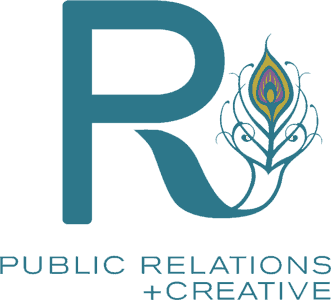When you think about public relations (PR), most people picture businesses sharing news and trying to get positive press mentions to increase brand awareness and credibility. Yes, PR does those things, but there’s an important flip side to it as well. You see, PR doesn’t just help businesses promote the good; it also helps you to overcome negative publicity. As such, PR has an integral role in crisis management. Here’s how it can help your brand in a crisis.
What is Crisis Management?

By definition, a crisis is a time of intense difficulty, trouble, or danger. But in the business world, a crisis is really any unanticipated event that could disrupt your operations and/or cause potential harm to your brand reputation, including:
- Product recalls
- Customer injuries
- Employee misconduct
- Security breaches
- Natural disasters
In turn, crisis management is the art of not only responding effectively to events that have occurred but also being proactive in anticipating crises so that your business is prepared.
How PR Can Help with Crisis Management

The goal of public relations is to influence, engage, and build a positive relationship and/or image with your target audience, which is why PR tactics are so ideal for helping brands in a crisis. The role of PR in crisis management gives brands the following.
1. Peace of mind
When a crisis hits, panic typically follows, and that’s when mistakes happen. For most businesses, crisis management isn’t something you or your team deal with every day. So it’s natural to be overwhelmed and unsure of what to do. A PR specialist can take that worry off your shoulders by acting swiftly and surely on your behalf to protect your brand in the public eye.
2. Freedom to focus on the crisis
There’s much more to worry about in a crisis than public relations alone. Having to split your focus between what to say in public, to your customers, and to your employees while also working on the logistics needed to resolve the crisis itself leaves you pulled in so many directions that you and/or your team may not be as effective as you could be. With a PR specialist handling the media and your message to each audience, you’re free to focus on the aspects of the crisis in which you’re needed most.
3. More control of the narrative
When it comes to crisis management, speed is everything. Especially how fast you communicate about the crisis. It’s much harder to change public perception once the crisis is already being talked about in the news and/or on social media than to drive the message from your point of view. During the time it takes you and your team to decide whom to contact and what to say, the narrative can quickly spin out of your control.
The key is getting the right message to the right people right away. A PR specialist can help you do just that because they already have the processes and the connections in place.
4. Ability to present your brand in the best light
Most of the time, how you say something is just as important as what you say. If you’re not used to speaking with the media or on video, you could inadvertently come across in a way that does more harm than good during a crisis. PR specialists have the training and finesse to help you get your message across in a way that puts your brand in the best light. It’s imperative that everyone representing the brand about the crisis is authentic, honest, and transparent in their words and their body language.
5. An even better reputation
When done right, crisis management may potentially improve your reputation over the long run. Of course, it depends on the crisis at hand, but businesses that are authentic, honest, and open the lines of communication through effective PR have often been the ones who have thrived despite the circumstances.
6. The means to monitor the situation
As the crisis evolves, so will public sentiment, which means you need to keep a pulse on national and local news outlets and what your customers are saying on social media. Again, if this isn’t something you deal will every day, you may not have the means or the time to stay on top of this effectively. Not to mention knowing when to respond and how. But your PR specialist will!
They’ll also be able to track your campaigns carefully as well. If your crisis communication approach is working, great! If it’s not, they’ll help you reassess to see how you might tweak to improve communications going forward.
Next Steps for Crisis Management

The adage, “the best defense is a good offense,” certainly applies when it comes to crisis management because the reality is that you’ll be best prepared to respond to a crisis if you proactively plan for one.
A PR specialist can help create a plan that identifies where your brand might be vulnerable, develops messaging for potential scenarios, and appoints those who will speak on the brand’s behalf. They can also help with media training. But, most importantly, keep in mind that one crisis does not have to define your brand, and with effective crisis management, it won’t. So, to get started, contact us to schedule a call today!
